Contact for the resource
Ifremer, Station de Sete
10 record(s)
Type of resources
Categories
Topics
INSPIRE themes
Keywords
Contact for the resource
Provided by
Years
Formats
Status
-
Assessment of small pelagic species resources in the Gulf of Lion. This falls under the MEDIAS project.
-
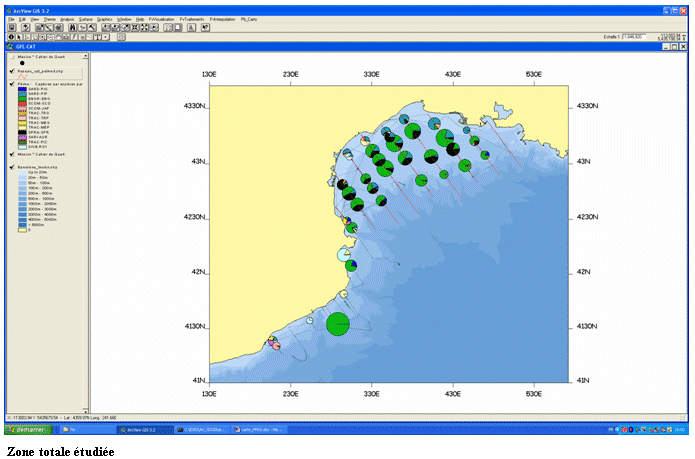
Assessment of small pelagic species resources in the Gulf of Lion using echo-integration and trawl hauls to identify the observed echoes. This is related to the SIDEPECHE programme.
-
The series of PELMED cruises began in 1993. Their objective is to assess small pelagic resources in the Gulf of Lion, using the echo-integration method and trawling to identify the detections observed. Until 2007, each cruise consisted in systematically prospecting from Port-Vendres to Marseille, along 9 legs set 12 nautical miles apart, perpendicular to the coast, in daytime (6 am to 9 pm), along the entire width of the continental shelf. Acquisition along legs for acoustic prospection covered 440 nautical miles and the catches from trawling to identify the structures encountered led to a complete analysis: number and weight by species, size sampling, otolith samples taken in order to construct size-age keys for sardines, anchovies and hake, updating of biological parameters.
-
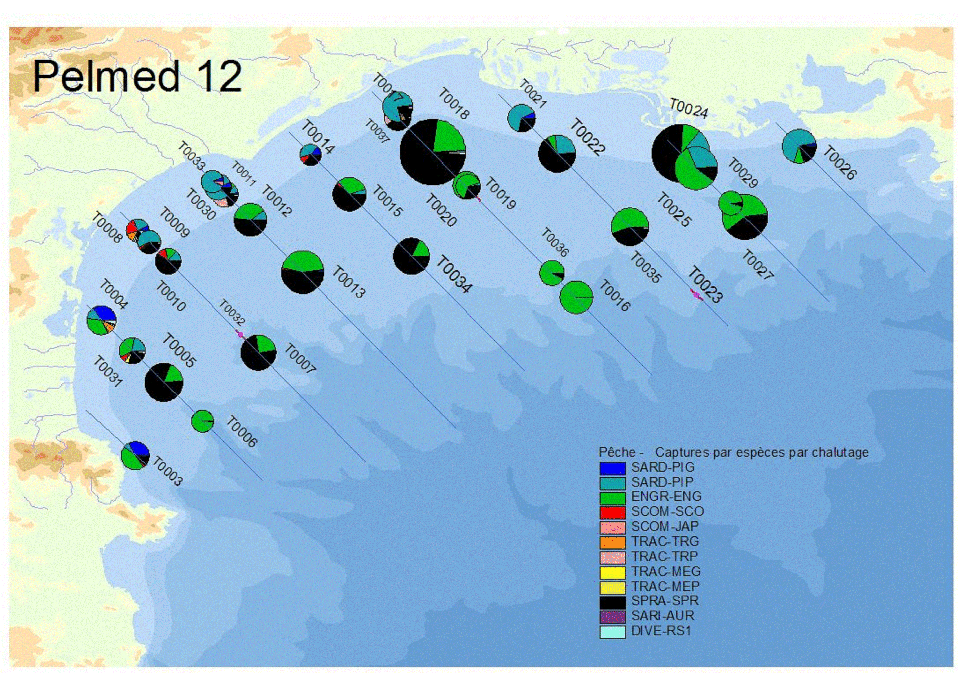
Assessment of small pelagic species resources in the Gulf of Lion using echo-integration and trawl hauls to identify the observed echoes. This falls under the SIDEPECHE project.
-
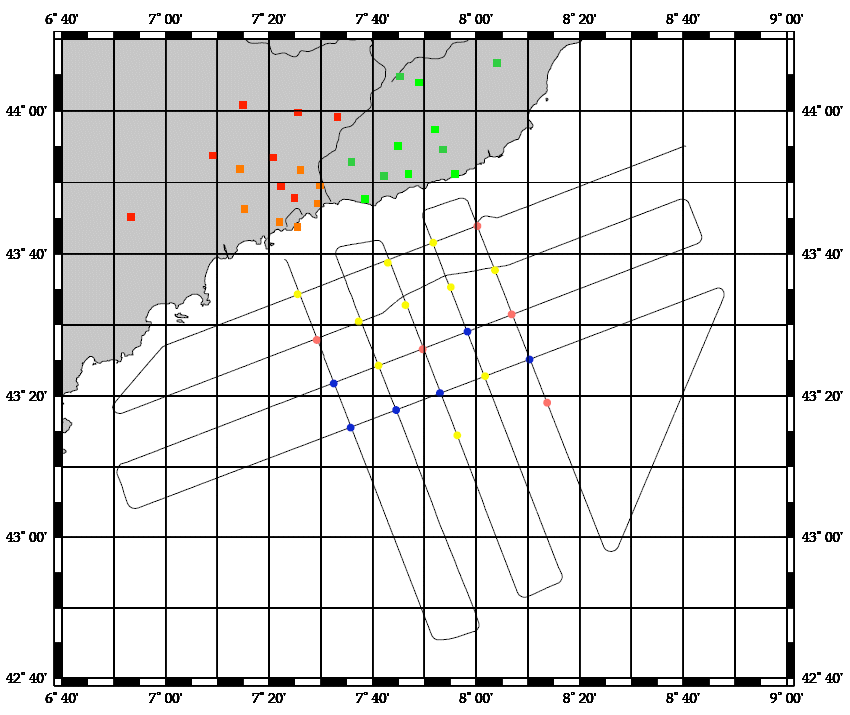
Assessment of small pelagic species resources in the Gulf of Lion using echo-integration and trawl hauls to identify the observed echoes. This falls under the SIDEPECHE project.
-
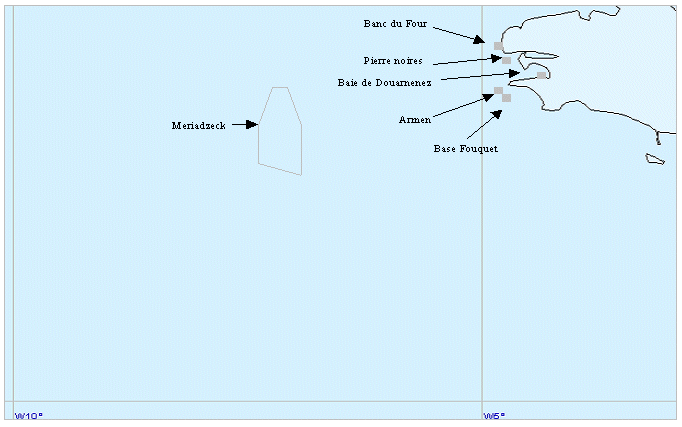
Assessment of small pelagic species resources in the Gulf of Lion using echointegration and trawl hauls to identify the observed echoes. This fell under the SIDEPECHE project.
-
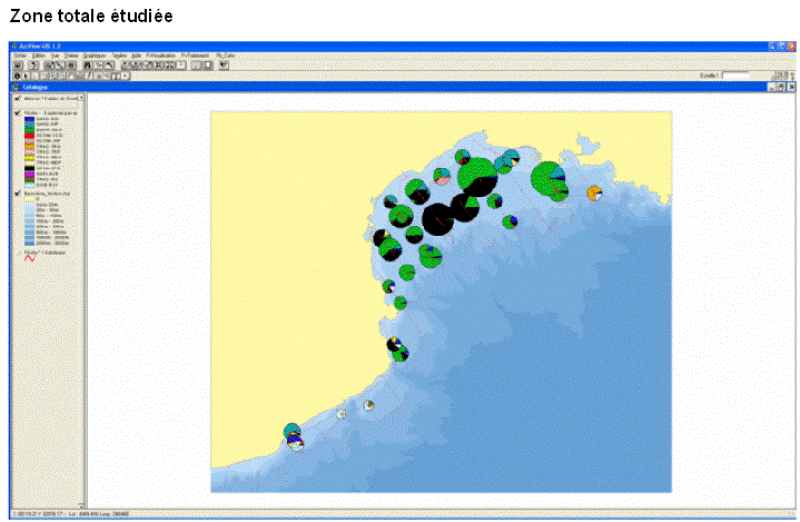
Assessment of small pelagic species resources in the Gulf of Lion using echo-integration and trawl hauls to identify the observed echoes. The cruise was related to the EASYPECHE project.
-
<p style="margin-left:0cm; margin-right:0cm">The objective of the campaign PELMED is to estimate the biomasses of small pelagic fish of the Gulf of Lion by acoustic method and to collect a maximum of parameters at each level of the trophic chain. This approach aims towards a more and more ecosystematic campaign(countryside), what is in adequacy with the Directive Centre Strategy for the Marine environment (DCSMM) and the objectives of the UMR MARBEC.</p>
-
Assessment of small pelagic species resources in the Gulf of Lion using echointegration and trawl hauls to identify the observed echoes. This falls under the EASYPECHE project.
-
Small pelagic fish are both the keystone species of the ecosystem because of the central position they hold in the food chain and represent highly significant economic stakes for fisheries since they make up the majority of landings in the French Mediterranean (approximately 50% of catches for sardines and anchovies; Demaneche et al. 2009). So, to assess stocks and propose appropriate management methods, it is important to have both good knowledge about these species and independent fisheries data. Ifremer's fisheries science laboratory in Sète has monitored these populations since the 1990s. In 2002, the EU asked Member States to formalize certain operations by contract, in this context, the PELMED cruise was part of the extended contractual programme for biomass assessment (DCF). Therefore, each year France is obliged to assess the biomass of small pelagic species in the Mediterranean, in order to determine the stocks' status and propose management measures. These assessments are carried out in the framework of the general fisheries commission for the Mediterranean (CGPM). Since numerous countries had begun monitoring these species using acoustic methods, the MEDIAS (MEDIterannean Acoustic Surveys) scientific group was created in 2008 with the objective of standardizing the protocols. Finally, national management plans for Gulf of Lion fisheries were set up in 2014 (particularly for pelagic trawlers and purse seines) with scientific objectives touching on the biomass of small pelagics. The PELMED cruise, whose main aim is to directly assess the small pelagics biomass, is conducted therefore in a clearly institutional framework (national, European and Mediterranean). However, the scientific stakes remain just as important. Since 2008, a special situation has been observed in the Gulf of Lion, where the biomasses of sardines and anchovies (and even mackerel) have decreased synchronously. Even more unexpectedly, although the recruitment rates observed over the past few years in the species are particularly high, the populations don't seem to be growing back and their biomass is continuing to drop. This is particularly surprising in a marine ecosystem where recruitment is generally considered to be the determining factor of population dynamics for species with a short life span. The collection of biological parameters on species of small pelagics done during the previous PELMED cruises made it possible to highlight significant demographic changes (loss of large age classes, decrease in size, poorer body condition) which seem to suggest "bottom-up" population control. Therefore, the ecosystem-based nature of the PELMED cruises (from physical parameters to top predators, not to mention phyto- and zooplankton and fodder fish) appears to be crucial in understanding the dynamics of these populations. It was decided this year to stop prospecting the Catalan Sea, in order to extend the spatial coverage to the east of the Gulf in the PACA region (from Marseille to Nice). Since the narrowness of the shelf in this zone does not allow for prospecting along "classic" legs, the objective will be to validate a prospection method which is adapted to the area.
 Catálogo de datos del IEO
Catálogo de datos del IEO